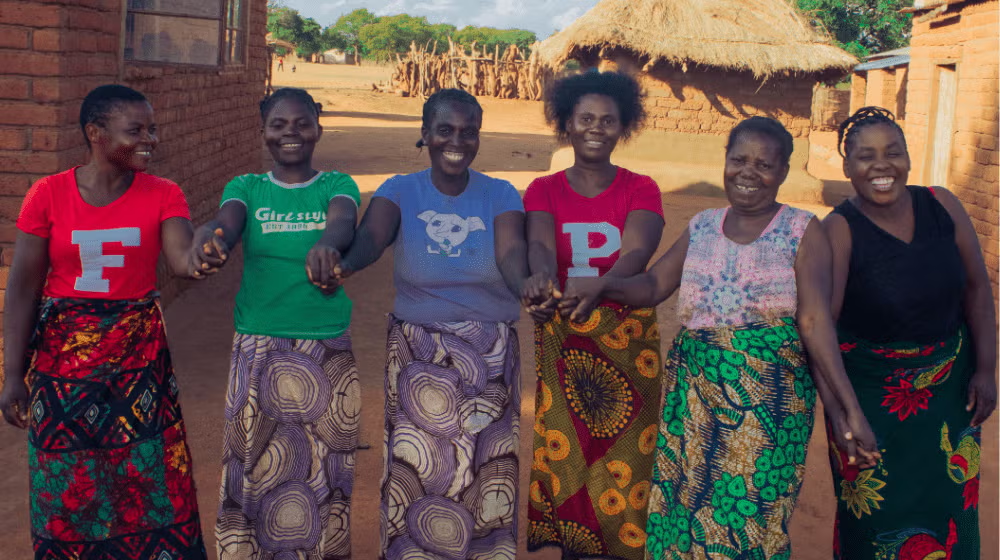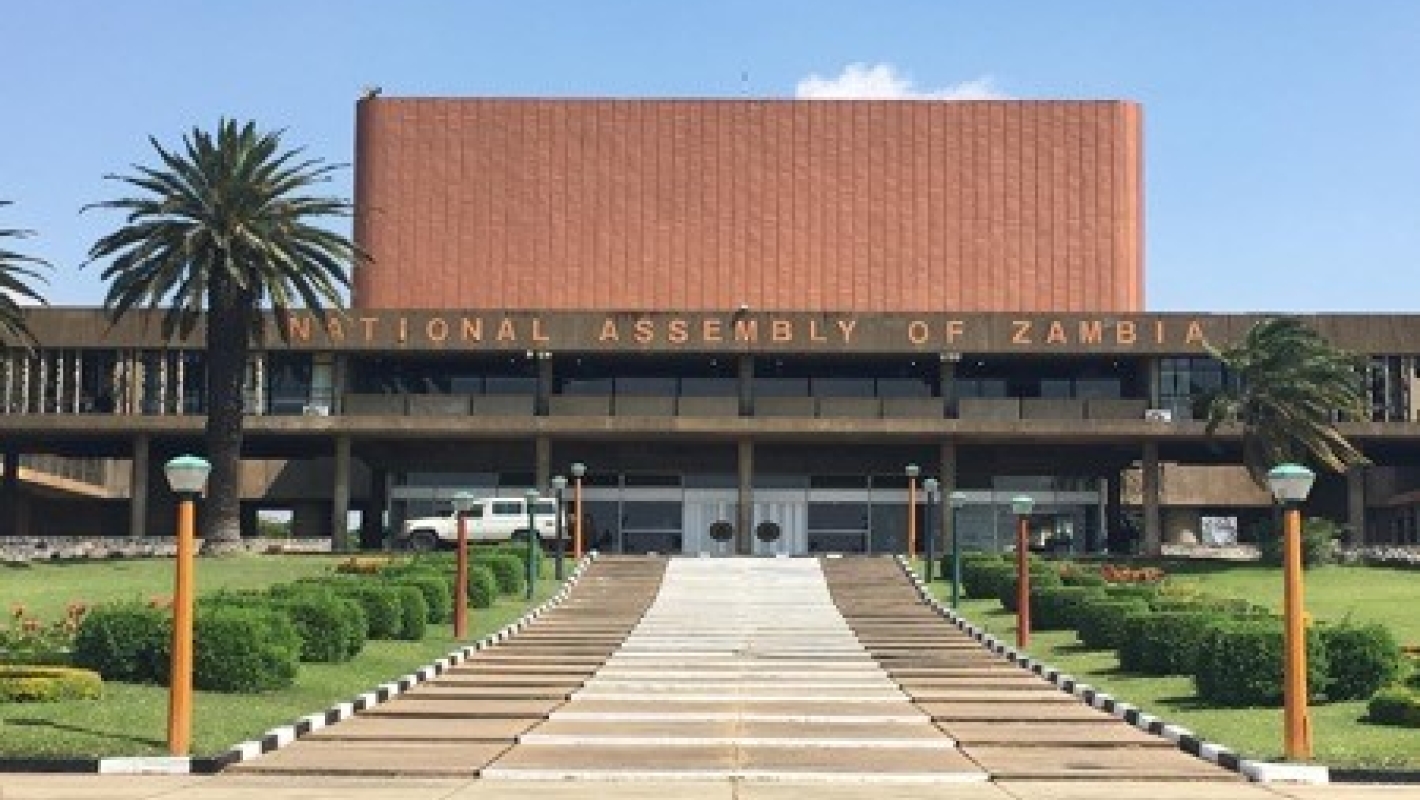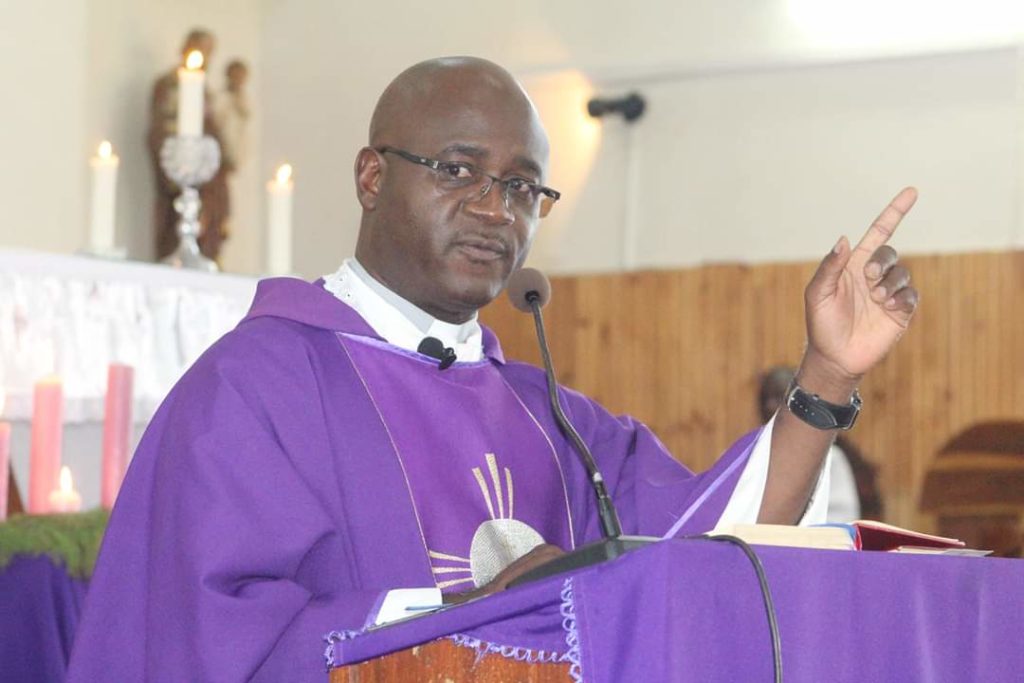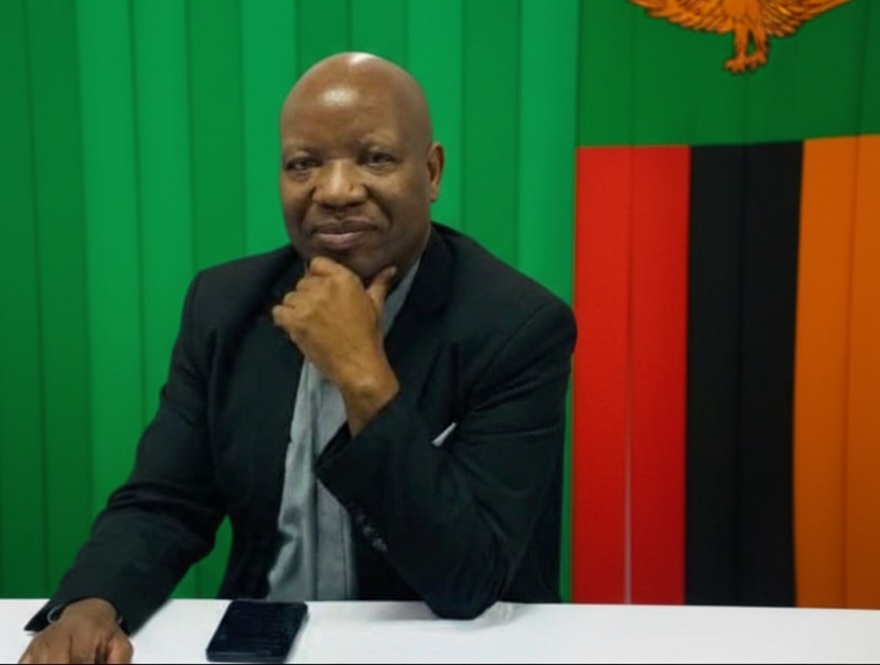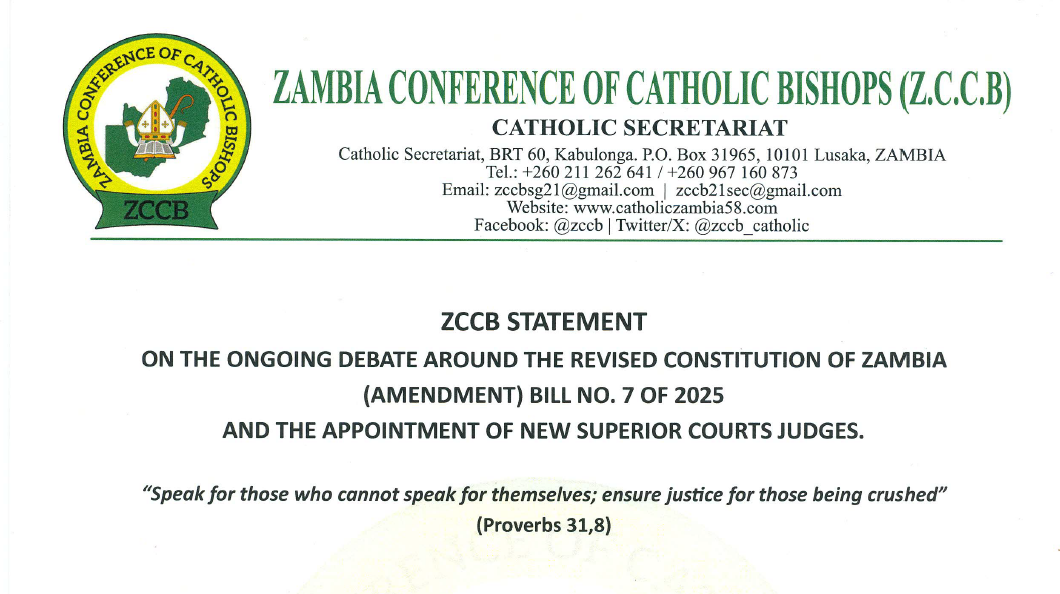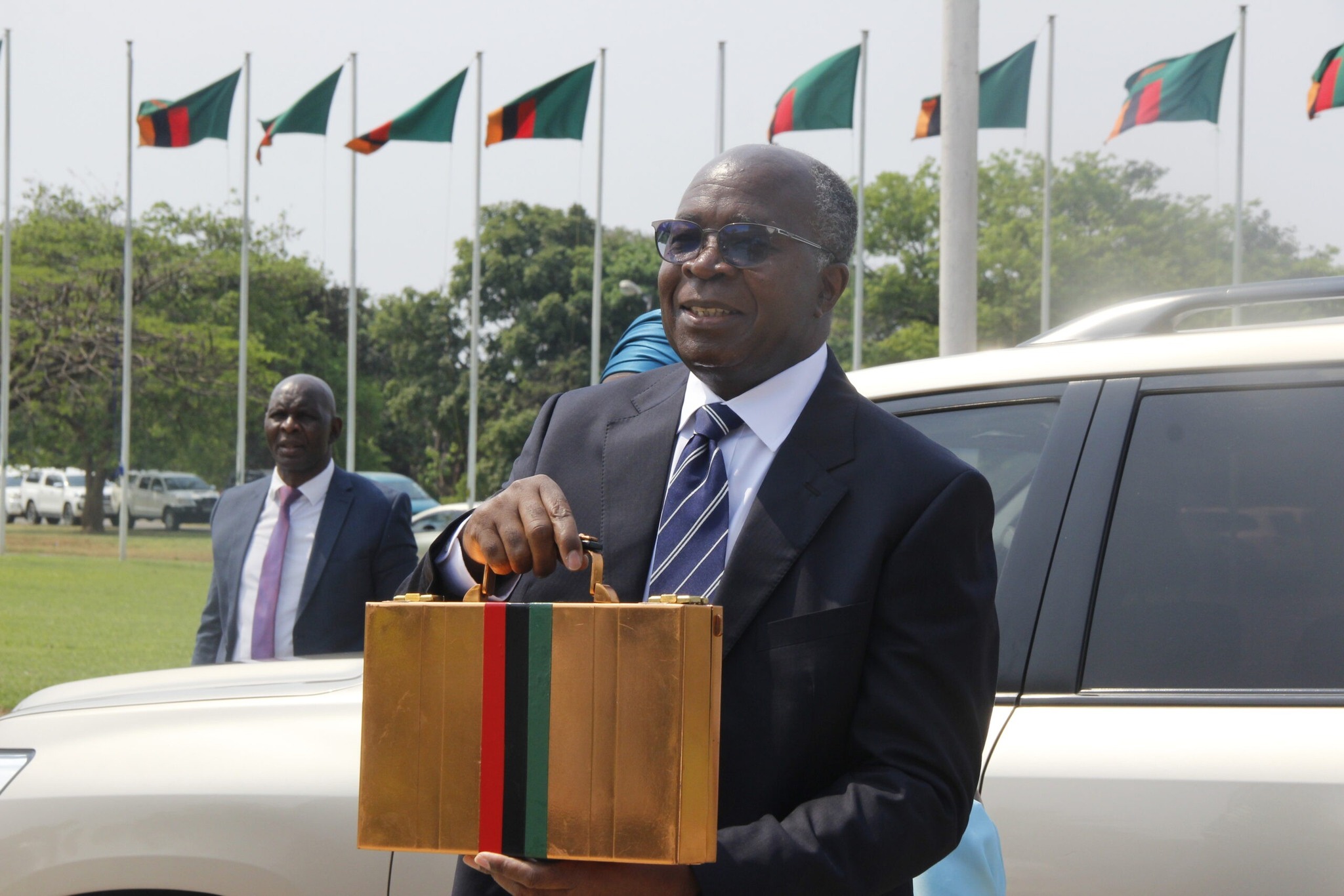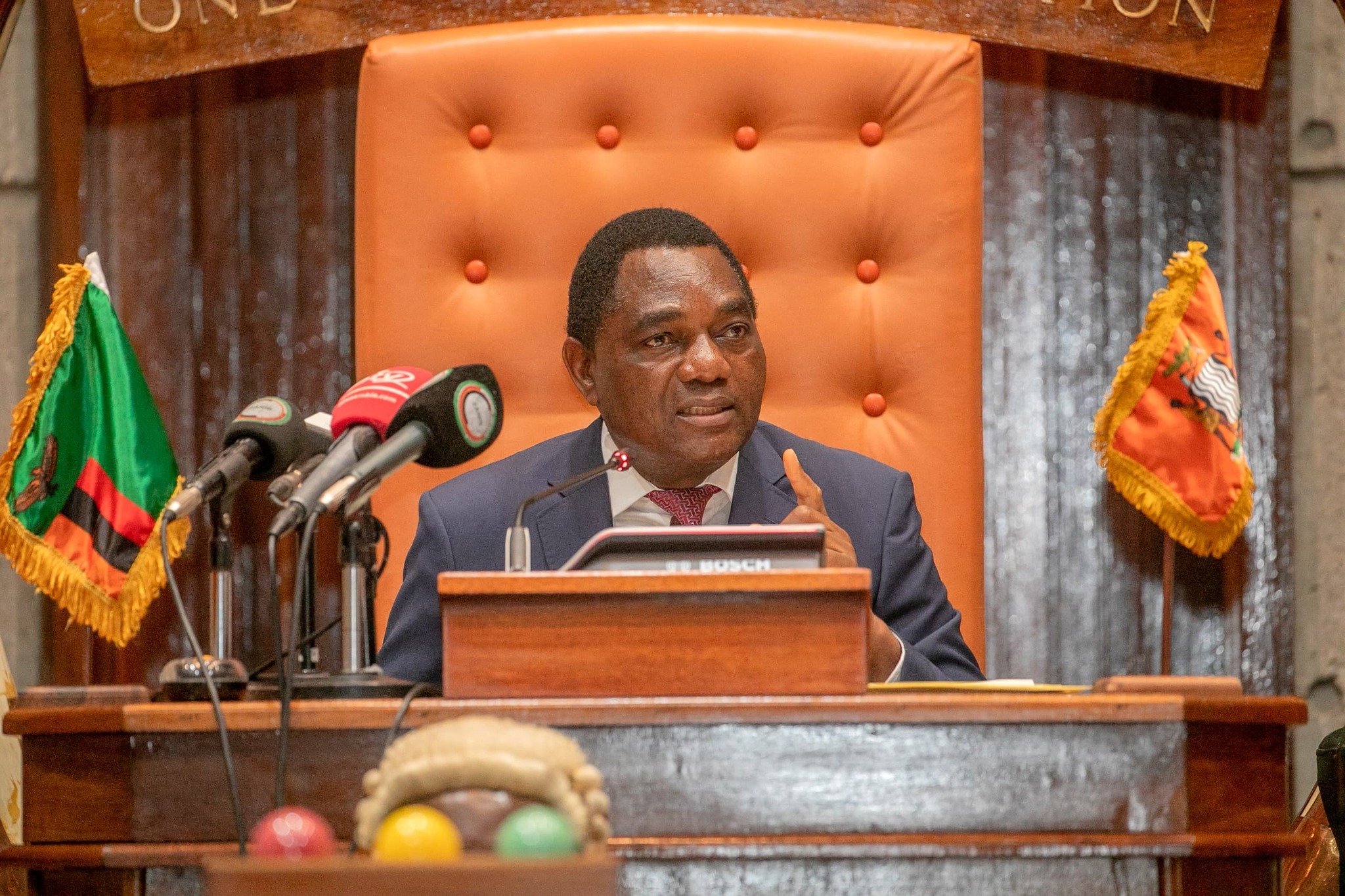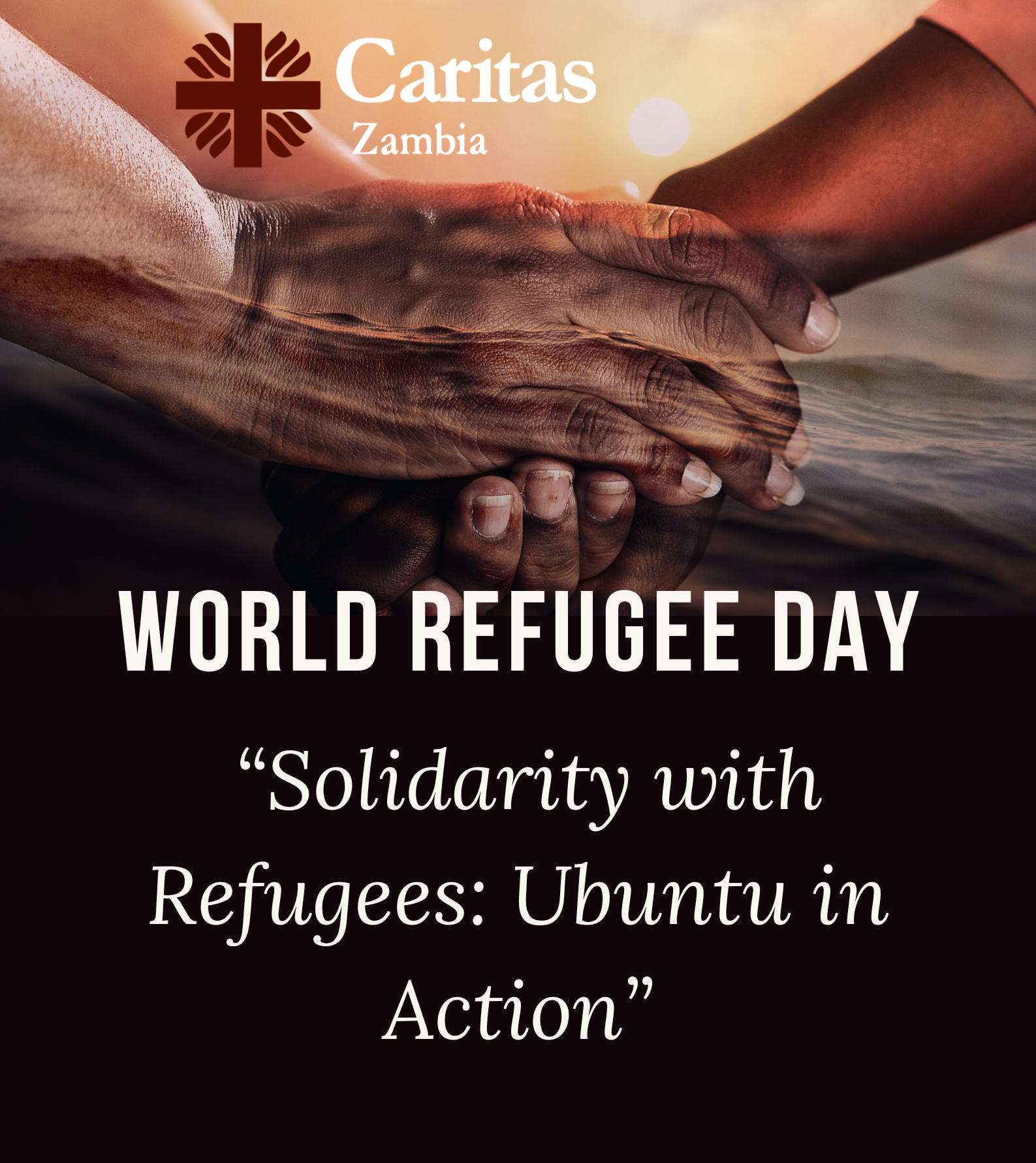COMMITTEE: NATIONAL GUIDANCE AND GENDER MATTERS
FOCUS: GENDER RESPONSIVENESS IN CLIMATE CHANGE POLICY FRAMEWORKS IN ZAMBIA.
1.0. INTRODUCTION
Caritas Zambia, is a Faith Based Institution anchored under the Zambia Conference of Catholic Bishops (ZCCB), whose commitment is centered around advancing the Social Ministry of the Catholic Church. Our mission embodies integral evangelization, which encompasses the spiritual and physical well-being of individuals. This approach aligns with the universal response of the Catholic Church, where Caritas and Justice and Peace serve as integral components wherever the Church operates.
Inspired by the Second Vatican Council's teachings, particularly articulated in "Gaudium et Spes" (1965), Caritas Zambia recognizes the struggles and aspirations of all people, especially those marginalized or the poor, as central to its evangelizing mission. The Church's dedication to social justice was emphasized by the Synod of Bishops in 1971, underscores the transformative role of advocating for improved Social Justice and strengthening the participation of these vulnerable groups in decision platforms or opportunities.
In the spirit of strengthened collaboration with other likeminded actors, Caritas Zambia emphasises the integrated work of Development, Justice, and Peace. The establishment of the Dicastery for Promoting Integral Human Development by the Vatican in 2016 further exemplifies this synergy, consolidating various Pontifical Councils to address justice, peace, migration, health, and charitable initiatives. Further Caritas Zambia is affiliated with Caritas Internationalis (CI) and Caritas Africa (CA) who play a significant role in providing technical support in the operation of the organization, including policy guidance and financial mobilization among others.
Therefore, our work with the vulnerable and marginalised in society can not be over emphasised especially in a society marred with deepening inequalities between the rich and the poor, men and women etc. Caritas Zambia recalls the story of the Last Judgment (Mt 25:31-46) and instructs us to put the needs of the poor and vulnerable first. As such, Caritas Zambia and indeed the Catholic Church does not believe in Charles Dewan’s theory of survival of the fittest, it believes in a society that takes care of the vulnerable and distribution of resources equally.
Download the entire Memorandum On Gender Responsiveness In Climate Change Policy Frameworks In Zambia here: https://caritaszambia.org/phocadownload/general/Memorandum-Gender-Responsiveness-Climate-Change-Policy-Frameworks-Zambia.pdf
CARITAS Zambia’s Submission To The Parliamentary Committee On Legal Affairs, Human Rights And Governance
2026
1. Introduction
This memorandum was prepared by Caritas Zambia in response to a request made by the Committee on Legal Affairs, Human Rights and Governance of the National Assembly of Zambia. The request was for Caritas Zambia to prepare and submit a memorandum commenting on the following;
Download the entire CARITAS Zambia’s Submission To The Parliamentary Committee On Legal Affairs, Human Rights And Governance - The State Of Refugees And Asylum Seekers In Zambia here: https://caritaszambia.org/phocadownload/key_papers/Caritas-Zambia-2026-Committee-On-Legal-Affairs-Human-Rights-And-Governance.pdf
“Take courage; I have conquered the world.” (John 16,33)
Dear brothers and sisters in Christ.
1. As we draw near to the close of the activity year 2025, I want to pause and express my heartfelt gratitude to each of you. Your dedication, resilience, and teamwork have carried us through challenges and enabled us to achieve so much together for the glory of God and the good of the people we serve.
Advent: A season of hope
2. On Sunday, 30th November 2025 we will be ushered into the liturgical season of Advent. During this season the Church invites us to journey with hope in the spirit of deep reflection, repentance, joyful expectation and renewed commitment to the Gospel.
3. The liturgical rhythm of Advent is not mere ritual; it is a spiritual journey that strengthens us to face the realities of our time with faith, hope and courage, expecting and knowing that Jesus is coming to put everything right. Indeed, at his first coming into our human history, Jesus already laid the foundation for things to be right.
Advent: A Season of Preparation
4. It is important to be conscious of the fact that Advent is not merely a countdown to Christmas; it is a profound spiritual journey of waiting, watching, and preparing our hearts for the coming of our Lord Jesus Christ — both in the mystery of His Incarnation and in His glorious return at the end of time. Further, Advent is a time of courage and trust, especially in the midst of the challenges we face in our daily living as individuals, as secretariat community and as a nation.
5. The four candles of the Advent wreath which is found in our churches during the four weeks of this season remind us of the progressive light that grows as we draw nearer to the celebration of the Lord’s nativity. As the prophet Isaiah proclaims: “The people who walked in darkness have seen a great light” (Isaiah 9:2). This light is Christ Himself, who came into the world to renew our lives in every respect.
• The first candle of hope, reminds us that Christ is the light who dispels the darkness of sin and death in our lives.
• The second candle of peace, calls us to reconciliation in our families, communities, and nation.
• The third candle of joy, invites us to rejoice in the mercy and magnanimity of God as we echo the Virgin Mary’s Magnificat: “My soul magnifies the Lord” (Luke 1:46).
• The fourth candle of love, points to the fullness of God’s gift in Christ.
Advent in Our National Context
6. In our Zambian context today, Advent has come to challenge us to be bearers of hope amid economic struggles and political tension that weigh heavily upon all citizens. At the same time, ongoing debates surrounding constitutional integrity and governance remind us that our civic responsibilities are inseparable from our Christian witness.
7. Zambia’s challenges are real, but so too is God’s promise of the coming and establishment of His kingdom. The season of Advent is here to teach us that history is not abandoned to chaos; it is guided by the Lord who comes to save us. In this regard, therefore, Advent, is not only a season of waiting; it is also a call to lift our eyes beyond despair and to walk in the light of peace, justice and solidarity; for the Lord himself assured us: “Take courage; I have conquered the world” (John 16:33). Indeed, the Lord is coming, without delay (cf. Hebrews 10:37).
Christ our light in times of darkness
8. Just as the chosen people of God awaited the Messiah with longing, so too do the season of Advent calls us to await the renewal of our lives and nation with hope. The birth of Christ that Advent announces and prepares is the assurance that darkness does not have the final word.
9. It is from this backdrop that I invite everyone to:
a) Deepen prayer and vigilance: “Watch therefore, for you know neither the day nor the hour” (Matthew 25:13) - Advent is the time to prepare our hearts for Christ by renewing our commitment to prayer, meditating on the Word of God, and receiving the sacraments. Let us relentlessly invoke the Holy Spirit upon our nation by echoing the words of the Psalmist: “Send forth your spirit, Lord, … and renew the face of the earth” (Psalm 104:33).
b) Practice Christian solidarity: In the gospel of Matthew, we read: “Whatever you did for one of the least of these brothers and sisters of mine, you did for me” (Matthew 25:40). Thus, in the face of economic challenges and social-political turbulences, let us uplift one another, embodying the Gospel of love, compassion and tolerance.
c) Defend truth: As constitutional debates in our country unfold, let us remember that civic responsibility is also a Christian duty. We must all stand for integrity, peace, justice, unity and the common good, while rejecting violence, corruption and division. As the Prophet Amos admonishes: “Let justice roll down like waters, and righteousness like an ever-flowing stream” (Amos 5:24).
d) Witness to hope: Let us not surrender to despair but proclaim with our lives that Christ is “Emmanuel” — God with us. As St. Paul exhorts: “Rejoice in hope, be patient in tribulation, be constant in prayer” (Romans 12:12). Remember, hope in the Lord Jesus Christ never disappoints (cf. Romans 5:5).
Let us therefore walk together through the Advent season with hearts open to Christ. May our waiting be active, our hope be steadfast, and our love be generous.
Christmas: A season of joy and renewal
10. Christmas is a season of hope, joy, and renewal. It reminds us of the power of generosity, the importance of family and community, and the light we can bring into the lives of others. I encourage you to utilize the period of recess to rest, to celebrate with loved ones, and to return refreshed for the opportunities that await us in the coming year 2026. Let us carry forward the spirit of unity and service that should always define our institution.
11. On behalf of Management, I wish you a fruitful Advent season, a blessed Christmas, and a joyful and prosperous New Year. Thank you for all that you have contributed for the growth of the Church and enhancement of the mission of evangelization in Zambia. Your efforts truly make a difference.
12. May the Blessed Virgin Mary, who awaited the birth of her Son with faith and courage, accompany us through the coming Advent journey.
Fr. Francis Mukosa
ZCCB Secretary General.
27th November 2025
Download the entire article Fr. Francis Mukosa's Advent message to catholic secretariat members of staff - 2025 here: https://caritaszambia.org/phocadownload/general/Fr-Francis-Katongo-Mukosa-Advent-message-to-secretariat-2025.pdf
Lusaka, 24th October 2025
Dear Brothers and Sisters, especially the youth, on October 24th, we celebrate 61 years of independence under the banner of "One Zambia, One Nation." This is not just a public holiday; it is a sacred day of reflection, gratitude, and a powerful reaffirmation of our collective destiny.
Sixty-one years ago, our founding mothers and fathers lit the flame of freedom. We celebrate the tremendous gifts they passed on to us: firstly, Peace and Unity, the spirit of "One Zambia, One Nation" across our more than 70 ethnic groups, secondly, Democratic Resilience, marked by peaceful transitions of power, and thirdly, The Zambian Spirit of natural warmth and hospitality. These are the solid foundations upon which our future must be built. We have come a long way, and we must never forget the strength in our unity.
Yet, as we celebrate, we must speak a painful truth: our journey is far from over. We acknowledge the millions of our people, our family, who still struggle daily, who face the harsh realities of poverty, unemployment, and lack of access to basic resources. We have not yet fulfilled the promise of prosperity for all. This is not a moment for despair or regret, but for a fierce, patriotic determination.
To those who are struggling: You are seen. Your struggle is not a measure of your worth, but a measure of the work that remains for our nation. Your resilience is the fuel for our national engine.
Call for Inclusive Leadership
For Zambia to truly rise, those entrusted with the power of appointment must be the guardians of our national motto. To all who are in charge of placing people in positions of public service: Be Sensitive: Our nation is built on inclusion. Every corner of Zambia, North, South, East, and West, must see themselves represented and served by the government. Prioritize Merit and Unity: Appointments must be based on competence, integrity, and merit, but they must also reflect a clear commitment to regional balance.
The Public Service belongs to all Zambians, not just a section, and certainly not just political supporters. Serve All Zambians: The only litmus test for a public servant should be their ability and dedication to serve all citizens, regardless of their political affiliation or ethnic origin. A divided government cannot lead a united nation to prosperity.
Message of Faith and Encouragement
To every heart that is heavy and every hand that feels tired, remember that we do not walk this path alone. In the midst of our national and personal struggles, let us cling to the promise of hope:
"Do not be afraid, for I am with you. Do not be dismayed, for I am your God. I will make you strong and will help you; I will uphold you with my victorious right hand." Isaiah 41:10
When circumstances are overwhelming, know this: God sees you, God knows your path, and He is a constant presence in your struggle. Do not give up. Your faith, coupled with your work, will move mountains for our nation.
Youth as Catalysts of Innovation
To the young men and women of Zambia, you are the majority, the inheritors of this nation, and its most powerful resource. Our challenges are not roadblocks; they are unsolved puzzles waiting for your genius. Stop looking at the problems and start seeing them as opportunities to innovate:Is the food supply chain inefficient? Become the agri-tech entrepreneur who designs a better storage solution or a digital market platform.
Is it hard to access good healthcare? Become the tech founder who uses mobile apps to connect remote patients with doctors. Is poverty pervasive in your community? Become the social entrepreneur who creates jobs by turning local waste into valuable products. Innovation is simply solving a problem in a new, better way. You don't need a massive investment to start; you need an idea, a laptop, a small team, and the courage to fail and try again. The biggest breakthroughs in history were born out of the biggest challenges.
Let's change the narrative. Let the 61st year of independence be marked not just by remembering the past, but by unleashing the entrepreneurial fire of the youth to build the future.
A Call to Action
On this year’s Independence Day, let us put aside the politics of division and the paralysis of regret. Let us embrace the power of hope fueled by hard work. We stand ready, on the shoulders of giants, with 61 years of peace and unity in our history, and a world of innovation at our fingertips. Let us honor the sacrifices of the past by fighting the only battle left: the fight for shared prosperity.
The future of Zambia is not a gift; it is a creation. Go out and create it!
God bless Zambia.
Fr. Dr. Gabriel Mapulanga
Executive Director, Caritas Zambia
Download the entire CARITAS ZAMBIA'S 61st INDEPENDENCE MESSAGE: HOPE AND INNOVATION here: https://caritaszambia.org/phocadownload/general/Caritas-Zambia-Statement-61st-Independence.pdf
Download the entire ZCCB Statement On The Revised Of Bill 7 And Appointment Of Judges - 1st October 2025 here: https://caritaszambia.org/phocadownload/general/ZCCB-Statement-on-the-revised-of-Bill-7-and-appointment-of-judges-1st-October-2025.pdf
29th September 2025
2026 National Budget: A Critical "Outside the Box" Analysis.
After listening to the presentation of the budget, all that came to my mind is a question: How do I analyze this budget? The presentation of the budget year after year is almost the same and I am familiar with it. I always feel, there is something not mentioned by the minister of Finance.
I just want to find the best way I can analyze the Zambian budget presented by the finance minister on Friday, 26th September 2025. In the first place, the minister presented it with a lot of confidence and pride - it was all success. The economy has recovered; foreign investment is coming back especially in mining. All success. Indeed, from the paper, the economy is doing well. I sincerely thank the government for turning the economy from the disaster it was heading to 5 years ago.
Maybe, in my personal capacity, the best analysis is to follow the idiom: “thinking outside the box.” In this case, “analysis outside the box”. I need to analyze that which is outside what the budget focused on. For instance, so much investment in mining. The thing is: how many has mining employed? So many youths offloaded every year on labor market. How many are absorbed before others are offloaded? When it comes to housing, what is the government doing about? The government is not doing much apart from building a few expensive houses.
A necessary approach for a socio-economic analysis, is needed: Focusing on the real-world impact on the most vulnerable, rather than just macroeconomic indicators, constitutes a critical "outside the box" analysis.
Here is a framework, in my personal opinion, for analyzing the Zambian budget from the perspective of Inclusivity, Employment, and Basic Needs (specifically housing), counterbalancing the government's narrative of high-level economic success.
1. Deconstructing "Jobless Growth": The Mining Sector Trap
The budget's emphasis on mining investment and its expected economic recovery often leads to what is known as "jobless growth." This is the core area to analyze outside the box.
A. Employment Multiplier Effect
- Key Question: What is the employment elasticity (jobs created per unit of growth) of the mining sector compared to other sectors?
- Analysis Point: Mining is highly capital-intensive, meaning it relies more on machines, technology, and large financial investments than on human labour. Its contribution to GDP (Gross Domestic Product) is disproportionately larger than its contribution to employment.
- Actionable Data: Get the latest available figures on the percentage of the labour force employed in mining versus the percentage of GDP it contributes. High growth in mining may only benefit a small, segment of the population, leaving the majority of the working-age population behind.
B. Youth on the Labour Market
- Key Question: How does the budget's spending on Education, Skills Development, and Youth Empowerment compare to the scale of the youth unemployment problem?
- Analysis Point: If thousands of graduates are "offloaded" onto the labour market annually, the focus needs to be on sectors with high absorption capacity.
-
- Alternative Sector Focus: Analyze allocations to Agriculture, Tourism, Manufacturing (especially value addition), and the SME (Small and Medium Enterprise) sector, which are typically more labour-intensive.
- Budgetary Commitment: Look for concrete and sufficient financial allocations to vocational training and entrepreneurship programmes that address the skill mismatch and foster job creation outside the major industries.
2. Analyzing the "Housing Crisis": Beyond Luxury Homes
My point about the government (NAPSA, and others) building a "few expensive houses" highlights the crucial difference between housing development and affordable housing.
A. Affordability and Supply-Demand Mismatch
- Key Question: What specific budgetary line items address low-cost housing and slum upgrading in densely populated urban and peri-urban areas?
- Analysis Point: A budget should reflect a commitment to the needs of the majority of the population.
- Focus on the Poor: Expensive housing caters to the wealthy or middle-class, but the most acute housing crisis in Zambia is faced by the poor, who live in informal settlements. The analysis should focus on social housing schemes, subsidies for basic building materials for low-income families, and investment in essential infrastructure (water, sanitation, roads) in informal settlements, which dramatically improves their quality of life.
B. Land and Policy
- Key Question: Are there budget allocations for streamlining the land titling process, which provides security of tenure for low-income residents?
- Analysis Point: Housing policy isn't just about building; it's about empowerment. Budgetary support for land reforms that favour the poor and reduce bureaucratic hurdles is a key indicator of genuine commitment.
3. The Social Protection Perspective: Reaching the "Bottom 48%"
The overall confidence in the economy may hide persistent issues of poverty and inequality. My personal analysis must use the budget to gauge the government’s commitment to social equity.
A. Real Value of Social Safety Nets
Key Question: Has the allocation to core social protection programmes (like the Social Cash Transfer or Food Security Pack) kept pace with inflation and the rising cost of living?
-
-
- Analysis Point: Nominal increases in a budget can be misleading. If the budget, for instance, increased by 6.3% but inflation is higher (e.g., 12%), the real value of the spending has decreased. This means poor families are receiving less support in real terms. You must check the real change in these allocations.
-
B. Geographic and Regional Equity
Key Question: Is the budget heavily tilted toward urban, already developed areas, or does it adequately fund decentralization initiatives (like the Constituency Development Fund—CDF) and rural infrastructure?
-
-
- Analysis Point: True inclusive recovery requires investment in all regions. While CDF is an initiative to promote local development, the analysis should scrutinize the capacity and transparency of its implementation, ensuring the money actually translates to local jobs and essential services, rather than being concentrated on a few high-profile projects.
-
In Summary: The "Outside the Box" Checklist
|
Government Focus (The "Box") |
my Focus (Outside the Box) |
Key Question to Ask |
|
Mining GDP/Investment |
Mining Employment & Value Addition |
How many sustainable jobs does this massive investment create for a growing, young population? |
|
Infrastructure (Trunk Roads) |
Social Housing & Informal Settlement Upgrading |
How much is spent on low-cost housing and basic infrastructure for the urban/peri-urban poor? |
|
Overall Economic Growth (GDP) |
Poverty & Inequality Reduction (Real Terms) |
Does the real value of social protection spending increase or decrease after accounting for inflation? |
|
Recruitment (e.g., Teachers) |
Youth Skills & Entrepreneurship |
Are there sufficient, well-funded programmes to absorb the thousands of unemployed, non-government job-seekers? |
By Fr. Dr. Gabriel Mapulanga
Download the entire 2026 National Budget Analysis here: https://caritaszambia.org/phocadownload/general/2026-National-Budget-A-Critical-Outside-The-Box-Analysis.pdf
CARITAS ZAMBIA STATEMENT IN RESPONSE TO THE PRESIDENT'S ADDRESS DURING THE OFFICIAL OPENING OF THE FIFTH SESSION OF THE THIRTEENTH NATIONAL ASSEMBLY ON FRIDAY, 12TH SEPTEMBER, 2025.
Caritas Zambia takes this opportunity to react to the president’s address to the nation, during the official opening of the Fifth Session of The Thirteenth National Assembly On Friday, 12th September, 2025.
We acknowledge and commend the President for highlighting the progress made in Zambia's economic and social transformation agenda over the past four years. The restoration of economic growth, regaining of market confidence, and reinforcement of the rule of law are significant achievements that deserve recognition. These strides reflect the efforts of the government and its commitment to national development.
However, while we appreciate the acknowledgment of progress, we are concerned about the brevity and vagueness with which the President addressed the pressing challenges facing the nation. Issues such as load shedding, which continues to affect the daily lives of Zambians despite the recent rainfall and the filling up of Kariba Dam, require more detailed and actionable solutions. The President's expression of regret over the situation is appreciated, but concrete plans and timelines for addressing this issue are essential for restoring public confidence.
Moreover, the rising cost of living and unemployment crisis demand urgent and comprehensive attention. With over 100,000 young people graduating from schools, colleges, and universities every year, the current employment rate of 2,000 to 20,000 per year is woefully inadequate. This reality underscores the need for a robust job creation strategy that can absorb the growing number of graduates and provide opportunities for the youth. Without meaningful employment, the economic progress highlighted by the President will not translate into improved livelihoods for many Zambians.
We urge the government to provide clear and comprehensive strategies to tackle these challenges, ensuring that the citizens' suffering is alleviated. The lack of specific solutions or timelines for ending load shedding and addressing unemployment leaves many questions unanswered and undermines the progress otherwise highlighted.
We look forward to seeing more focused efforts in the coming days to address these critical issues and to build on the progress made. The nation remains hopeful for tangible improvements in the areas that directly impact the quality of life for all Zambians.
FR. DR. GABRIEL MAPULANGA
CARITAS ZAMBIA EXECUTIVE DIRECTOR
Download the signed copy of the CARITAS Zambia Response To Presidential Address When Opening 5th Session Of The 13th National Assembly, 12th September, 2025 here: https://caritaszambia.org/phocadownload/general/CARITAS-Zambia-Statement-In-Response-To-The-Presidential-Address-Opening-5th-Session-Of-13th-National-Assembly.pdf
1st September 2025
As we enter the Season of Creation, a sacred and solemn time dedicated to recognising and honouring the beauty and bounty of the natural world, we find ourselves called to deeper reflection and decisive action.
This year, the recent Pastoral Statement on Pollution and Environmental Degradation in Zambia compels us to confront the urgent environmental crises threatening our communities and ecosystems: rampant pollution, deforestation, soil erosion, biodiversity loss, and water contamination.
The Season of Creation invites us, as people of faith, to renew our commitment to act as responsible stewards of God’s creation. This stewardship goes beyond spiritual reflection; it calls for practical and sustained engagement in conserving and protecting our environment. We are called to incorporate ecological principles into our lifestyles, promote environmental education, and advocate for justice that heals both people and the planet.
Environmental stewardship is not optional but central to our Christian vocation. It demands that we listen to the cry of the Earth as well as the cry of the poor, recognizing the interconnectedness of all creation. In Zambia, this means addressing the causes of pollution and degradation by supporting sustainable agricultural practices, protecting forested areas, managing waste responsibly, and urging government and business leaders to adopt and enforce policies that respect the integrity of creation.
Scripture reminds us of our sacred responsibility:
“God blessed them and said to them, ‘Be fruitful and increase in number; fill the earth and subdue it. Rule over the fish in the sea and the birds in the sky and over every living creature that moves on the ground.” (Genesis 1:28)
This dominion is not a license for exploitation, but a divine mandate for stewardship—one that calls us to care, protect, and preserve creation for the common good.
Pope Francis echoes this in Laudato Si’, his encyclical on the environment, where he writes: “The climate is a common good, belonging to all and meant for all.” He urges us to hear both “the cry of the Earth and the cry of the poor,” recognizing that ecological degradation and social injustice are deeply intertwined.
May this Season of Creation deepen our appreciating the wonder of God’s handiwork and empower us to become faithful guardians of the Earth. Let us embrace the call of the Pastoral Statement by transforming our awareness into action, fostering solidarity with those affected by environmental harm, and committing ourselves to sustainable living that honours God, uplifts humanity, and protects the fragile web of life.
In this holy time, may our prayers and deeds be united in a powerful witness of renewal, restoration, and hope for our beloved Zambia and the entire world
PRESS RELEASE
27th June 2025
Caritas Zambia warmly welcomes His Excellency President Hakainde Hichilema’s directive to the Minister of Justice to withdraw the Constitution Amendment Bill from Parliament until further notice. This is a commendable and statesmanlike decision that reflects a commitment to democratic principles and inclusive governance.
Download the entirePress Statement'Caritas Zambia Commends Presidential Decision To Withdraw Constitution Amendment Bill, Urges Continued Dialogue' here: https://caritaszambia.org/phocadownload/general/Caritas-Zambia-Statement-on-Bill-7.pdf
On World Refugee Day, June 20th, Caritas Zambia stands in solidarity with refugees around the globe, especially the children and young people who have sought safety and a new beginning here in Zambia. This day serves as a powerful reminder of the resilience, courage, and hope of millions forced to flee their homes due to conflict, persecution, and violence.
Download the entire Caritas Zambia On World Refugee Day 2025: "Solidarity With Refugees – Ubuntu In Action" here: https://caritaszambia.org/phocadownload/general/Caritas-Zambia-World-Refugee-Day-2025.pdf
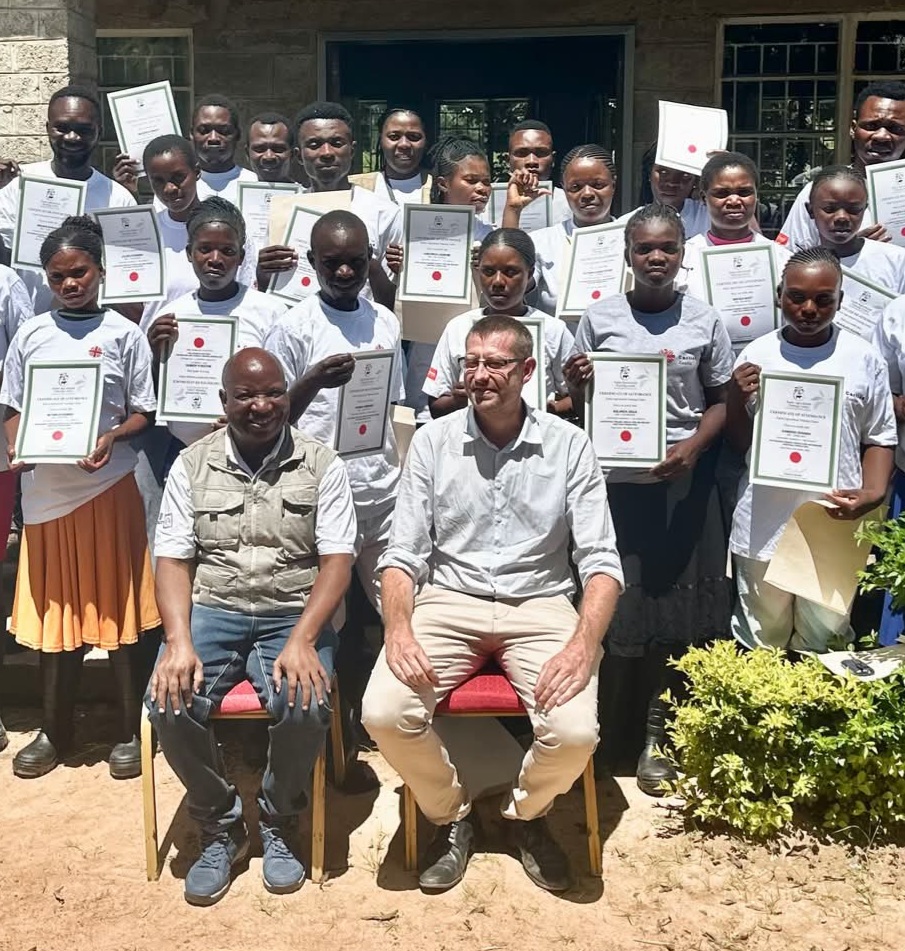
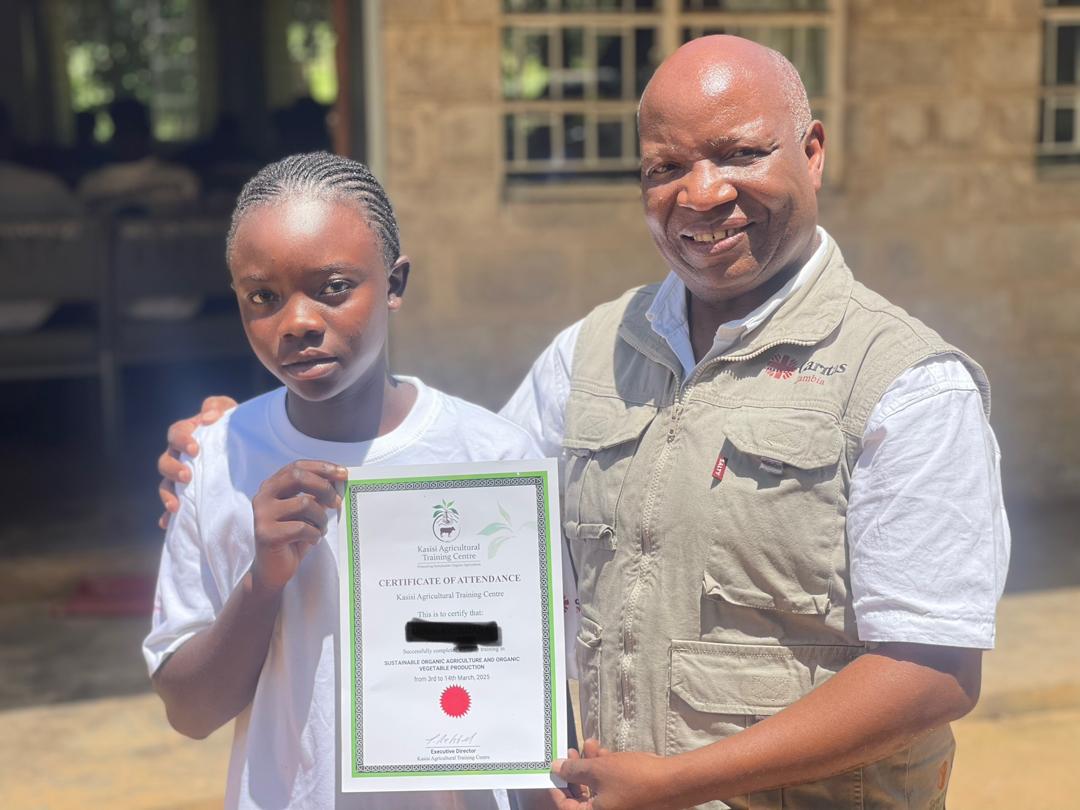
- EMBRACING OUR SHARED HOME AND OUR POOREST BROTHERS AND SISTERS: A WORLD ENVIRONMENTAL DAY REFLECTION
- A Call For Justice, Accountability, And The Preservation Of Life In The Face Of US Aid Reduction - CARITAS ZAMBIA Press Statement
- Caritas Zambia Commemorates Labour Day - The Enduring Wisdom of Catholic Social Teaching on Work
- Escalating Cases Of Child Sexual Abuse - Caritas Zambia Statement
- Three Church Mother Bodies Speak out On Political Landscape - March 2025
- CARITAS Zambia 2025 Youth Day Commemoration Statement Under The Theme "Voices Amplified And Innovations Ignited"
- Caritas Tracking How Mining Resources Have Flowed To Local Councils To Meet Local Development Priorities - Technical Study
- Caritas Tracking How Mining Resources Have Flowed To Local Councils To Meet Local Development Priorities - Summary Report
- Caritas Zambia Making Mining Money Work (3MW) Follow the Money 060325 - Posters
- Caritas Zambia Making Mining Money Work (3MW) Follow the Money 060325 - Comics
About Caritas Zambia
Caritas Zambia is a Catholic Organisation that is an integral structure of the Zambia Conference of Catholic Bishops (ZCCB). The Conference of Bishops is a permanent grouping of Bishops of a given nation or territory that jointly exercises certain pastoral functions on behalf of the Christian faithful of their territory. This is done for the sake of effective evangelisation. To promote the principle of the common good which the Church offers humankind, especially through forms and programmes of the apostolate which are fittingly adapted to the circumstances of the time and place, is the role of Bishops.
Kapingila Hse, Kabulonga Rd, Plot BRT6, P.O.Box 31965, Lusaka 10101, Zambia.
Tel: +260-211-260980 | +260-211-261789

